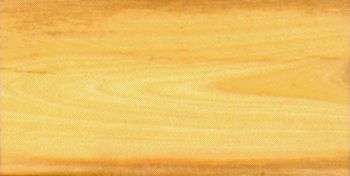
Avispillo (Ocotea coriacea)
Family: Lauraceae
Common names: Avispillo, Bastard torch, Baved, Black torch, Bois doux muscade, Bois doux negresse, Bois doux noir, Bois violin, Boniate, Capberry sweetwood, Cigua, Cigua blanca, Ciguarraya, Jamaica nectandra, Jamaica ocotea, Lancewood, Laurel, Laurel avispillo, Lauriel blanc, Laurier marbre, Lesiba, Pepper cilament, Sigua, Small leaved sweetwood, Sweehwood, Sweet torchwood, Sweet wood
Distributed in: Bahamas, Cuba, Dominican Republic, Guatemala, Mexico, Puerto Rico [US], Trinidad and Tobago, United States (Central America, North America, Oceania and S.E. Asia)
Common uses: Boat building: framing, Boxes and crates, Cabinetmaking, Charcoal, Fuelwood, Furniture, Heavy construction, Joinery, Light construction, Paneling, Plywood, Turnery, Veneer: decorative
Environment profile: Vulnerable
Tree size: Trunk diameter is 200-250 cm
Colors: the heart isRed, Yellowand the sapwoodWhite, Yellow.The grain isStriped figure, the textureMediumand the lusterMedium
Natural durability: Susceptible to attack from termites (Isoptera), Susceptible to insect attack
Odor: Has an odor
Kiln Schedules: Drying (speed) is fast
Kiln Drying Rate: Rapid
Drying Defects: Slight twist/warp, Splitting
Ease of Drying: Slowly
Comments: General finishing qualities are rated as good
Blunting Effect: Little
Boring: Fairly easy to very easy
Carving: Fairly Easy to Very Easy
Cutting Resistance: Easy to saw
Gluing: Fairly Easy to Very Easy
Mortising: Poor to Very Poor
Moulding: Very Good to Excellent
Movement in Service: Very Good to Excellent
Nailing: Holds nails well, Poor to Very Poor
Planing: Very Good to Excellent
Resistance to Impregnation: Resistant sapwood
Response to hand tools: Responds Readily
Routing recessing: Fairly Easy to Very Easy
Sanding: Very Good to Excellent Results
Veneering qualities: Veneers easily, Veneers moderately easy
Steam bending: Unsuitable
Screwing: Fairly Easy to Very Easy, Poor to Very Poor Results; Turning: Poor to Very Poor Results
Painting: Satisfactory; Polishing: Very Good to Excellent; Staining: Very Good to Excellent; Varnishing: Satisfactory
;
- Numerical data Metric
- Numerical data English
- Strength properties
- References
 |
 |
 |
 |
| Item |
Green |
Dry |
Metric |
| Specific Gravity |
|
|
|
| Density |
|
512 |
kg/m3 |
| Bending Strength |
|
|
kg/cm2 |
| Crushing Strength |
|
|
kg/cm2 |
| Hardness |
|
|
kg |
| Impact Strength |
|
|
cm |
| Shearing Strength |
|
|
kg/cm2 |
| Stiffness |
|
|
1000 kg/cm2 |
| Tangential Shrinkage |
7 |
|
% |
| Radial Shrinkage |
3 |
|
% |
| Weight |
496 |
400 |
kg/m3 |
| Maximum Load |
|
|
cm-kg/cm3 |
| Toughness |
|
|
cm-kg |
| Static Bending |
|
|
kg/cm2 |
|
 |  |  |  | | Item | Green | Dry | English | | Density | | 32 | lbs/ft3 | | Weight | 31 | 25 | lbs/ft3 | | Radial Shrinkage | 3 | | % | | Tangential Shrinkage | 7 | | % | | Volumetric Shrinkage | 8 | | % | |
Shrinkage, Tangential = moderate
Shrinkage, Radial = small
Shrinkage, Volumetric = very small
Shrinkage, Volumetric = moderate
Shrinkage, Tangential = small
Shrinkage, Radial = very small
Density (dry weight) = 31-37 lbs/cu. ft.
Britton, N.L., Millspaugh, C.F.,1920,The Bahama Flora,Britton & Millspaugh,New YorkCaribbean Commission,1952,Information on properties of timbers gathered by questionnaire and,collated in the secretariat of the Caribbean Commission including some,related data from technical literature.,Caribbean Commission, Port of Spain, Trinidad Caribbean Timbers, their,Utilization and Trade within the area CTUTA/1/Doc.7 + App.1-18Fors, A.J.,1965,Maderas Cubanas,Inst. Nac. Ref. Agraria La HabaraLittle, E.L., Wadsworth, F.H.,1964,Common Trees of Puerto Rico and the Virgin Islands,U.S.A. Department of Agriculture, Agriculture Handbook,No.249Longwood, F.R.,1961,Puerto Rican Woods - Their Machining Seasoning and Related Characteristics,U.S.A. Department of Agriculture, Agriculture Handbook,No.205Schiffino, J.,1945,Riqueza Forestal Dominicana (Three volumes,Secretaria de Estado de Agric. Ind. y TrabajoTakahashi, A.,1975,Compilation of data on the Mechanical Properties of Foreign Woods (Part 2,Central and South America,Shimane University, Japan, Research Report on Foreign Wood No.4
|








